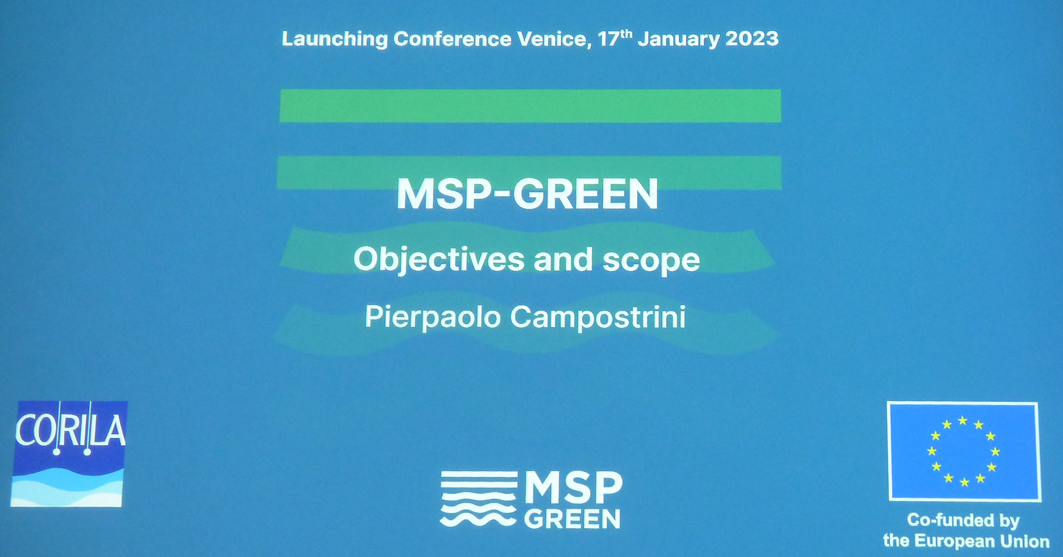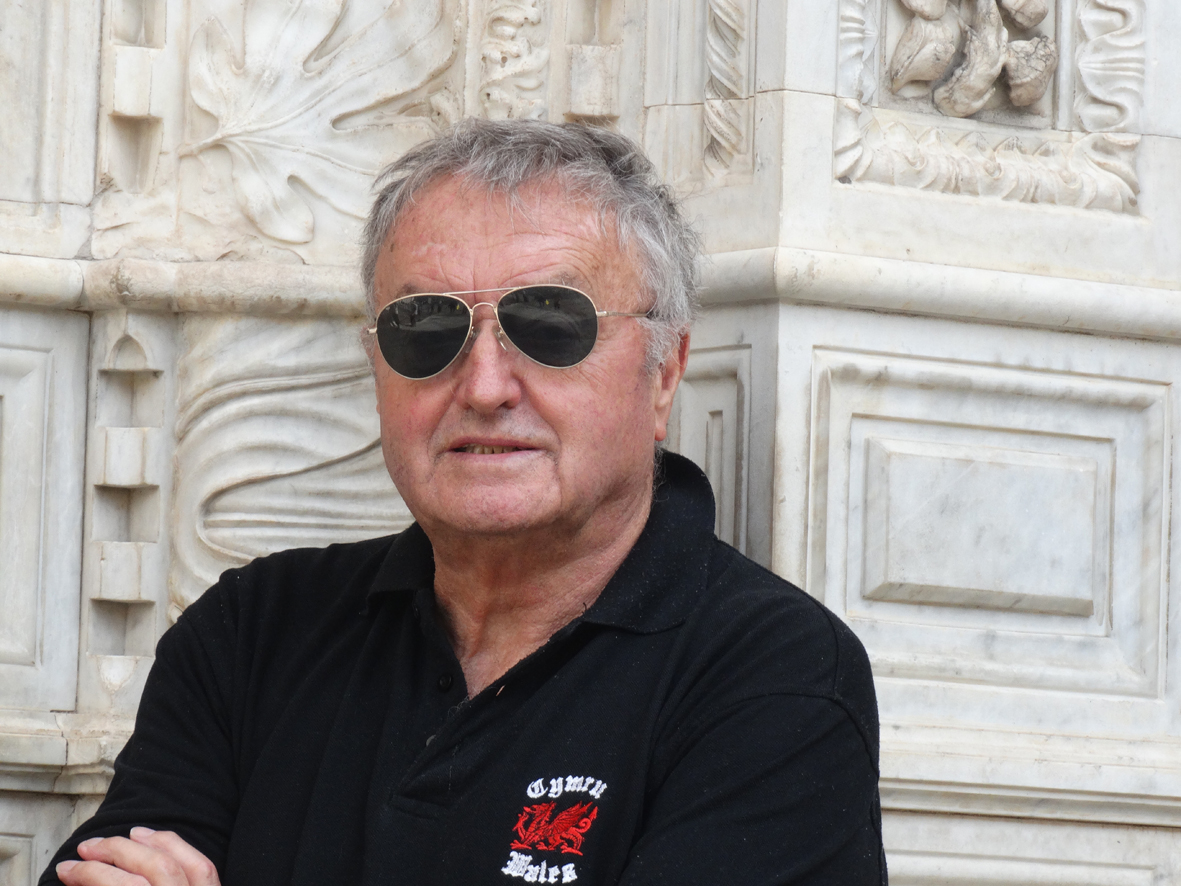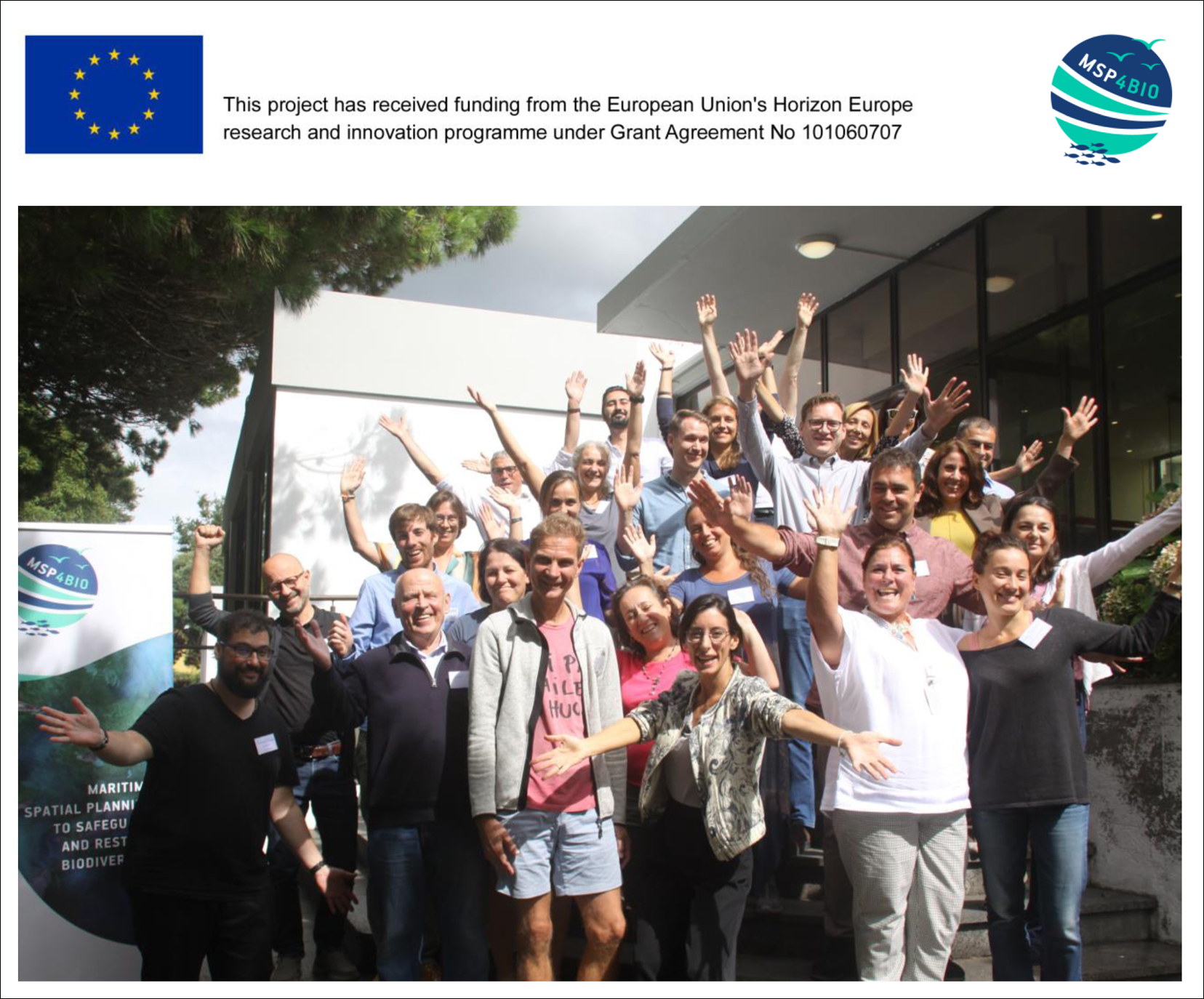News and Events
CCMS attended the MSP-GREEN Launching Conference on January 17th, 2023 in Venice, Italy

The Launching Conference of the MSP-GREEN project was organized on 17th January 2023 by CORILA, IUAV and CNR-ISMAR, in Venice, Italy at IUAV – Tolentini premises to present to the public the project objectives, invited speakers to describe state of the art and panel discussions with case studies on key topics for the maritime ecological transition.
The MSP-GREEN project contributes to align maritime spatial plans to the ambition of the EGD by creating a framework for plans as marine enablers of the EGD. The framework will provide a cross-cutting approach to the EGD key topics relevant for the marine environment and the sustainable transition of blue economy: climate change, circular blue economy, protection of marine biodiversity, marine renewable energies, sustainable food provision. Recommendations on how to strengthen the EGD ambition of EU MSP plans will be prepared. The sea basins’ dimension will be promoted by considering environmental, socioeconomic, and cultural specificities also, via dedicated Ocean Literacy driven communication.
Read more: CCMS attended the MSP-GREEN Launching Conference on January 17th, 2023 in Venice, Italy
THE MSP-GREEN PROJECT STARTING

The new EU funded MSP-GREEN project (Maritime Spatial Planning as enabler of the European Green Deal) was officially kick-offed on 07 December 2022 at a virtual event. The project has received funding by the European Maritime, Fisheries and Aquaculture Fund (EMFAF), Grant Agreement: 101081314 — MSP-GREEN — EMFAF-2021-PIA-MSP and has the duration of 24 months (1 November 2022 – 31 October 2024).

The MSP-GREEN is coordinated by CORILA (Consortium for Coordination of Research Activities of the Venice Lagoon), Italy. Other partners are: University of Venice (IUAV), Italy; National Research Council (CNR), Italy; Spanish National Research Council (SCIC), Spain; CEREMA (Centre for Studies and Expertise on Risks, the Environment, Mobility and Urban Planning), France; Regional Council of Southwest Finland (FI RCSW;) Center for Coastal and Marine Studies (CCMS), Bulgaria; Ministry of Environmental Protection and Regional Development of the Republic of Latvia (MoEPRD); University of Western Brittany (UBO), France; IFREMER (French Research Institute for Exploitation of the Sea), France; VASAB (Vision and Strategies around the Baltic Sea); Federal Maritime and Hydrographic Agency (BSH), Germany.
IN MEMORIAM: PROF. ALLAN T. WILLIAMS, a great scientist and friend!
It is with the greatest sadness to inform the coastal community that Prof. Dr. Allan T. Williams passed away on 17 November 2022.

We will not forget you...
From CCMS and the very many colleagues and friends all around the world!
MSP4BIO PROJECT WAS LAUNCHED: 26-27 SEPTEMBER 2022, AZORES, PORTUGAL
The Kick-off Meeting for the official launching of the MSP4BIO project took place on 26-27 September 2022 at Ponta Delgada, Azores, Portugal (organised by the University of the Azores) and online.

The MSP4BIO project (Improved Science-Based Maritime Spatial Planning to Safeguard and Restore Biodiversity in a Coherent European MPA Network) is funded by the European Union` Horizon Europe Research and Innovation Programme under the Grant Agreement: 101060707. The project runs for 3 years (August 2022 – August 2025 and its main objective is to develop and demonstrate the ways in which knowledge-based Maritime Spatial Planning (MSP) becomes a vehicle and a tool for the protection and restoration of biodiversity in line with several policy objectives, within its more general objectives of promoting sustainable blue growth, and integrating maritime policies.
Read more: MSP4BIO PROJECT WAS LAUNCHED: 26-27 SEPTEMBER 2022, AZORES, PORTUGAL
